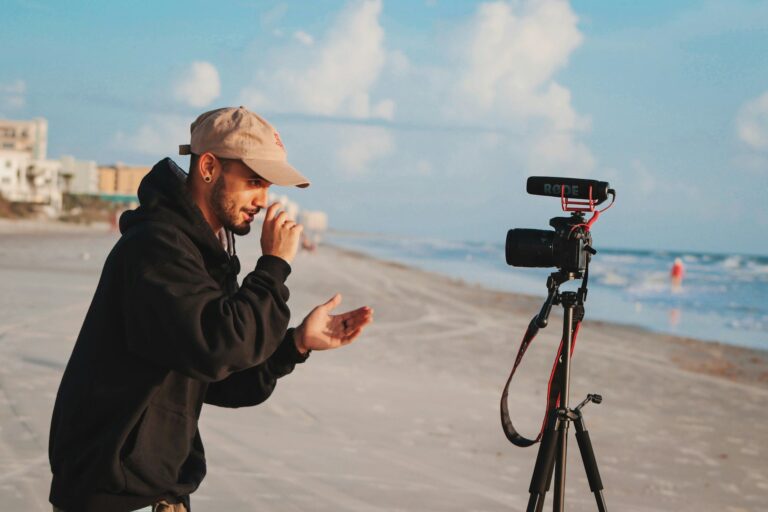In today’s competitive job market, landing your dream job isn’t just about submitting resumes and attending interviews. It’s about being seen as the person who can solve problems, add value, and stand out in a sea of applicants. That’s where personal branding comes in. A strong personal brand can position you as an expert, make networking easier, and even turn opportunities that once seemed out of reach into real possibilities.
Why Personal Branding Matters
Personal branding is your reputation online and offline. Think of it like this: when a potential employer searches for you, they’re not just checking your qualifications; they’re looking for a sense of who you are, how you communicate, and whether you fit the company culture. A consistent personal brand can answer these questions before you even step into an interview.
Creators, influencers, and professionals all have one thing in common: visibility is power. Whether you’re sharing your knowledge on LinkedIn, posting insights on Instagram, or building a professional portfolio website, the content you put out shapes how others perceive you. And the more thoughtful and strategic you are, the stronger your brand becomes.
Defining Your Brand
Before you can broadcast your personal brand, you need to define it. Ask yourself: What are your core skills? What values drive your work? How do you want others to perceive you? For example, a digital marketer might highlight creativity and data-driven decision-making, while a software engineer might emphasize problem-solving and collaboration.
Once you have clarity, it’s time to create content that reflects it. Short-form videos, blog posts, or even thoughtful LinkedIn posts can showcase your expertise.
You don’t need a big studio setup; even a simple smartphone, paired with a tripod like the UBeesize 10” Ring Light with Tripod, can help you create professional-looking videos or photos without breaking the bank.
Consistency is Key
A personal brand is only effective if it’s consistent. That means your tone, messaging, and visuals should feel cohesive across all platforms. If your LinkedIn posts are highly professional, but your Instagram is chaotic and unfocused, it can confuse potential employers or collaborators. Consistency builds trust and makes your brand recognizable. Over time, people will begin associating your name with certain qualities, like expertise, reliability, or creativity.
Share Your Story
One of the most powerful ways to build a personal brand is through storytelling. Sharing experiences, challenges you’ve overcome, or lessons learned makes your brand relatable and memorable. Employers and collaborators are more likely to engage with someone who communicates authenticity. For instance, instead of just listing achievements, a designer might post a story about the first project that failed spectacularly, and what they learned from it. This approach humanizes your brand and makes it stick.
Network Strategically
Personal branding isn’t just about content; it’s also about connections. Engaging with people in your field through LinkedIn comments, Twitter threads, or attending virtual and in-person events is a good way to expand your reach. When you consistently provide value, answer questions, or offer insights, people start seeing you as someone worth following or working with.
Guest appearances can amplify this effect. Whether it’s joining a podcast, collaborating on a blog, or contributing to a webinar, showing up in spaces where your audience already exists helps position you as an authority. Plus, it can create opportunities that lead directly to your dream job.
Highlight Your Work
Showcasing your portfolio, case studies, or personal projects online gives your brand credibility. A well-organized portfolio site, even a simple one built with WordPress or Squarespace, can function as a central hub for potential employers. Include tangible results, like metrics from past campaigns, project outcomes, or even videos demonstrating your skills. The goal is to make it easy for someone to see exactly what you can do.
Leverage Tools Wisely
You don’t need a production studio to elevate your personal brand. Tools like Canva for graphics, CapCut or iMovie for video editing, and even simple microphones like the Fifine USB Microphone can make your content look and sound professional. The key is using these tools to support your brand’s narrative—clarity, professionalism, and creativity should always come first.
Be Patient and Adaptable
Building a personal brand is a long-term strategy. Growth may feel slow at first, but consistency, authenticity, and networking compound over time. Stay adaptable; trends, platforms, and algorithms change. But, the core of your brand, your values, story, and expertise must remain constant. Over time, these elements make you more visible to the right opportunities.
Turning Your Brand into Your Dream Job
When your personal brand aligns with your career goals, opportunities begin to find you. Employers reach out, collaborations appear, and even freelance gigs can turn into full-time roles. By combining a strong brand, consistent content, authentic storytelling, and strategic networking, you position yourself as the professional people want to hire, and the expert they trust to deliver results.
Bottom line: Building a personal brand isn’t about self-promotion; it’s about communicating your value and story in a way that resonates. Start small, stay consistent, leverage the right tools, and engage authentically. The more intentional you are, the faster your brand can unlock the doors to your dream job.







Superb blog! Do you have any hints for aspiring writers? I’m planning to start my own website soon but I’m a little lost on everything. Would you propose starting with a free platform like WordPress or go for a paid option? There are so many options out there that I’m completely confused .. Any suggestions? Appreciate it!